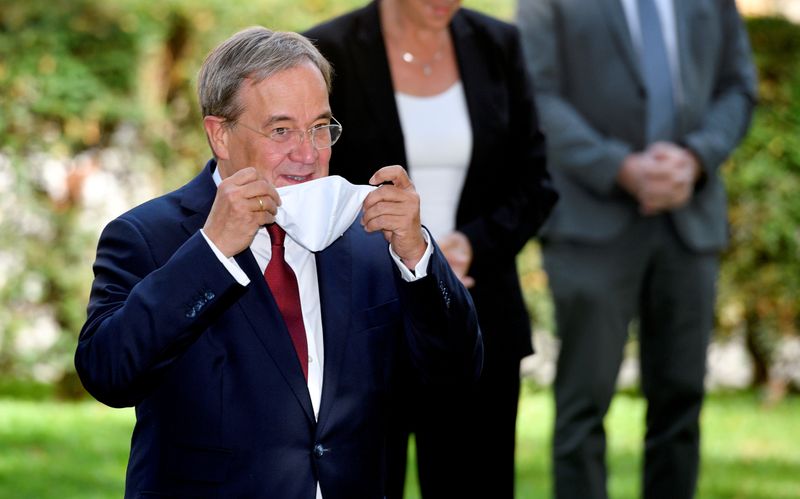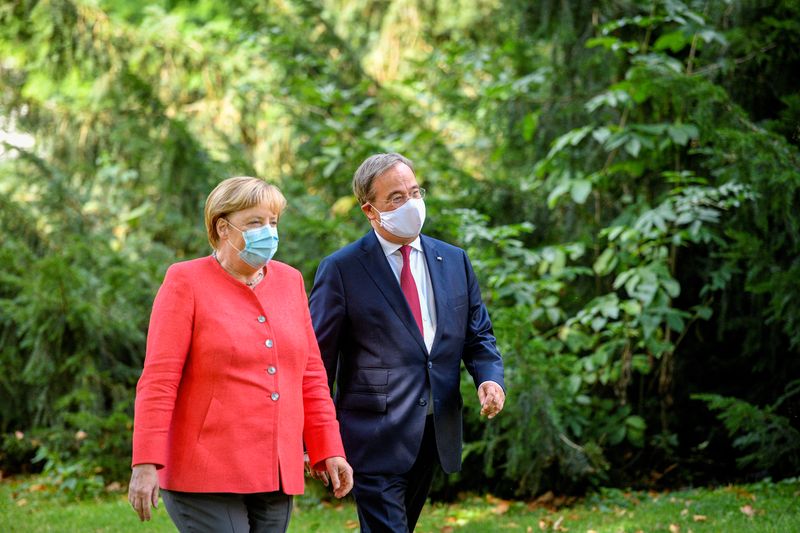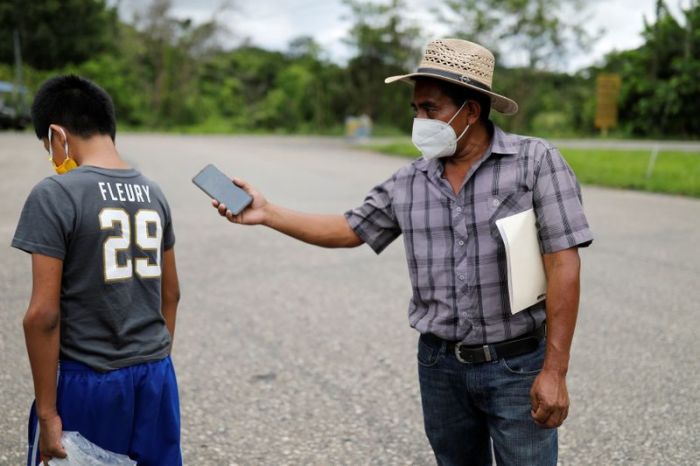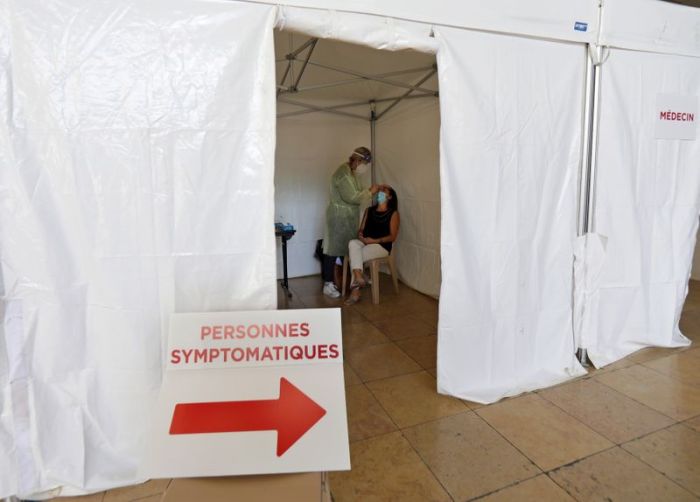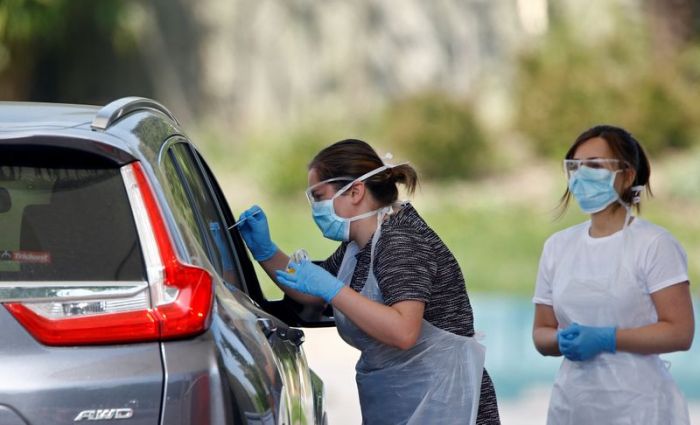BERLIN (Reuters) – German conservative Armin Laschet faces an early test in his quest to succeed Chancellor Angela Merkel with local elections on Sunday in his western state of North Rhine-Westphalia, where he has faced criticism for his handling of the coronavirus.
A strong showing by his Christian Democrats (CDU) would boost Laschet’s prospects as the race to succeed Merkel heats up and the party looks ahead to a congress in December at which it must choose a new leader.
The new CDU chairman will be in pole position to be the party’s chancellor candidate, though in theory the leader of its Bavarian sister party, the Christian Social Union (CSU), could run as the candidate for their alliance, dubbed “the Union”.
Merkel, in power since 2005, has said she will not seek re-election in federal elections due by October next year.
More than 14 million people are entitled to vote on Sunday in Germany’s most populous state – elections that will show how Laschet has emerged from a difficult summer.
After pushing for an easing of lockdown restrictions in April, he put the Guetersloh area back into lockdown in June after a coronavirus outbreak at a meatpacking plant. Polls showed voters rated his crisis management skills poorly.
The CDU appears to have endured the episode in North Rhine-Westphalia. An infratest dimap poll for broadcaster WDR last week showed the party leading rivals with 34% support, ahead of the Greens on 22% and the Social Democrats on 21%.
Laschet, a centrist, has sought to broaden his national appeal by teaming up with Health Minister Jens Spahn, who appeals to some on the CDU’s more conservative wing.
But polls suggest German voters would prefer CSU leader Markus Soeder to be the Union’s chancellor candidate. No chancellor has ever come from the CSU.
(Writing by Paul Carrel; Editing by Andrew Heavens)

